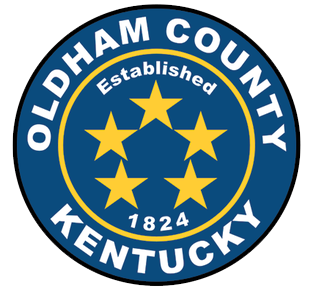Casey's Law Petitions
The Matthew Casey Wethington Act for Substance Abuse Intervention became a law on April 9, 2004. Only July 13, 2004, the law became effective in the state of Kentucky. This law was inspired by the death of Matthew Casey Wethington, who died of a heroin overdose at the age of 23.
Watch the videos below to learn more about what Casey's Law provides.
WHAT KIND OF LAW IS IT?
This is a law for involuntary treatment.
DOES INVOLUNTARY TREATMENT WORK?
Studies show that involuntary treatment can be just as successful as voluntary treatment. Most individuals who are substance abuse impaired receive Court-ordered treatment only after they have become arrested for a crime while under the influence of the substance. Drugs and crime often go hand in hand because people who are substance abuse impaired are forced by their disease to resort to any means necessary to procure their drug. Court-ordered treatment can be effective regardless of who initiates it.
DO THE PEOPLE WITH SUBSTANCE ABUSE DISORDERS HAVE TO WANT HELP?
Denial and distorted thinking impedes their ability to make a rational decision. The “bottom” for many is death. Addiction is a progressive, life-threatening disease. The best hope of survival for a person who is substance abuse impaired is intervention.
WHY NOT WAIT FOR COURT INTERVENTION?
Not all people who are substance abuse impaired are arrested or, in the event that they are, may not receive the necessary treatment.
WHAT DOES THIS LAW PROVIDE?
This Act provides a means of intervening with someone who is unable to recognize his or her needs for treatment due to their impairment. This law will allow parents, relatives, and/or friends to petition the court for treatment on behalf of the person who is substance abuse impaired. Treatment options can vary depending on the circumstances of each individual.
WHAT HAPPENS IF THE RESPONDENT FAILS TO COMPLY AT ANYTIME DURING THE PROCESS?
Failure to comply may place the respondent in contempt of court.
WHO PAYS FOR THE TREATMENT?
The petitioner is obligated to pay all costs incurred in the process, including treatment. HOWEVER, there are many free or low-cost inpatient treatment centers in Kentucky, and several grassroots organizations can help you navigate treatment options.
HOW CAN I OBTAIN A COPY OF THE PETITION?
A copy of the petition can be obtained at the district court clerk’s office by requesting Form #700A, the Verified Petition for Involuntary Treatment of Alcohol/Drug Abuse. The petition is also available at www.kycourts.net, or by visiting our office during normal business hours.
STEPS IN THE PROCESS
- A petition is filed with the district court clerk by a spouse, relative, friend, or guardian of the substance abuse impaired person.
- The court reviews the allegations in the petition and examines the petitioner under oath.
- The court determines whether there is a probable cause to order treatment for the respondent.
- If probable cause is established, the court orders the respondent to be evaluated, and a hearing is set within fourteen (14) days.
- The respondent is notified of the date and purpose of the hearing.
- The respondent is evaluated by two (2) qualified health professionals, at least one (1) of whom is a physician.
If the court finds the respondent should undergo treatment, the court shall order treatment from sixty (60) days or up to three hundred sixty (360) days, dependent upon the request in the petition and the result of the hearing.
Please call or visit our office for additional information or to speak with one of our attorneys.
